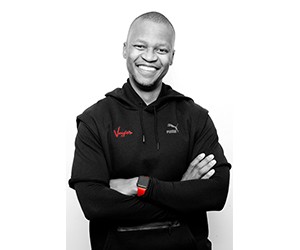For as long as I can remember economists and politicians have said that South Africa’s unemployment rate was a ticking time bomb. Well…BOOM! In fact, if we are to be honest, the bomb went off a long while ago and only now we are experiencing the aftermath. South Africa’s official unemployment rate is at its highest level since STATSA started collecting this data. According to STATSA the expanded definition of unemployment, which includes discouraged workers, the unemployment rate is 36.6%, up from 36.4% in the first quarter of 2017.
What is even more alarming is the unemployment rate for the youth younger than 25. The youth unemployment rate of 67.4% is a national crisis, with significant social and economic implications. As it often happens in times of crisis, people panic. Both Private and Public Sector are throwing money at this unemployment national disaster.
Unfortunately, like most of South Africa’s challenges, these challenges don’t necessarily need money. They need forward-thinking leadership. Had we exercised leadership as early as 10 years ago we would not have this problem today. 10 years ago we talked about the problem instead of fixing it. I often get a lot of people who come to my restaurant and tell me that they saw the same Vuyo's advert. "ooh Vuyo, he's such a beeg beeg dreamer. They thought of trademarking the brand (like I did) and start a business. The difference between me and them is that I did actually do something about it. I am not smarter or even have more capital than they do. The only difference is that I acted on what I thought was a good idea.
As South Africans, we are very good romanticising the problem instead of fixing it. We draw up good plans such as the NDP but fail to execute. As an antrepreneur I can tell you that action eats strategy for breakfast. Now, that we are here, complaining about what was not done is not going to solve our current colossal problem. Throwing money at our problem is both a lazy way of dealing with the problem and it is unlikely to work. The solution, I believe, starts with understanding the problem from the ground up.
Firstly forget trying to create jobs! When you start with this end goal in mind, the decisions you make will be clouded by circumstance. I once met John Smit, the most successful South African Springbok Rugby Captain. I asked him if there is a point in any game he knew that they would lose that specific game. He said yes. He went on to tell me about momentum. He said rugby and the game of life are about gaining momentum and keeping momentum. When you lose momentum and the momentum shifts to the other team, it is important NOT to think about gaining the momentum back. This causes panic. Panic causes bad decision making. I asked him so how do you get the momentum back? If you tell the players to attack, they focus all their energies on running the game at all costs. They then end up making foolish mistakes and invariably the loose even more ground. So what you need to do instead, is to tell them to focus on catching the ball properly. You give them a simple and clear task to focus on. This is what turns the momentum back.
South Africa needs to stop obsessing on job creation. We need start obsessing on idea creation. It is ideas that create and change industries. It is well-nurtured ideas that become businesses and corporates that ultimately create jobs. Not even Steve Jobs started Apple to create jobs. He started businesses because he saw a need that was not being fulfilled.
It does not matter if the idea is to right a wrong or fills a gap in the market or simply a passion project,; what matters is that you execute on the idea. It is important to remember that every business in the world started from an idea. I started a business based on a TV advert character called Vuyo, who sold boerewors rolls. It does not get any more ridiculous than that and yet today I employ 25 people. South Africa is a country with many great ideas. It is also a country with many enterprising ideas. From the first heart transplant, the CAT scan, to oil from coal by SASOL. These are remarkable ideas that have helped to shape industries.
To create Industrialist you need industries. Industrialists are simply entrepreneurs who capitalize on these industries at a massive scale. South Africa’s challenge in creating industries is that it is a developing third world country with first world financial services systems. This is a growth paralyzing oxymoron. This makes it difficult to push forward a developmental and wealth creation agenda when your financial services systems are in risk-averse wealth preservation mode. It would stand to reason that capital will always follow good ideas, but not in South Africa.
Ironically, I was having a meeting with a senior executive at one of the big 4 South African banks. It turns out the guy is a farmer over weekends. He said to me he was looking to expand his business and was looking for an investor. I was confused, he works for a bank. He said to me he would not consider asking the bank for capital as it was too expensive and restrictive. This was coming from a black guy who is a senior executive in the enterprise development department of the bank. Now if this guy would not go to the bank he works for, for capital, what chance do I have?
I went to Israel under the auspices of Investec, three years ago. We met with venture and angel investors. I was blown away by the fact that most investors in Israel invest upwards of a million dollars just on ideas!
Their philosophy is very simple. If we invest in ideas and one of the 10 ideas ends up being a Facebook or gets sold to Facebook their returns run into billions of dollars. I watched capital following ideas. Also what was interesting about this visit was that Israel has branded itself as a start-up nation. This simply means any idea is possible. More importantly, they have decided to focus on a handful of industries that they have a competitive advantage in, such as software development and the military.
The other benefit of focusing on specific industries is that it means certain of the industries become supplier and customer to each other. The military, for example, lends itself to technology and software development. GPS, solid state hard drives (thumb drives) and the internet are as a result of the military's ideation. These ideas have gone on to build industries and companies that then, in turn, build on those platform for civilian use and benefit. Those companies become multinationals that employ thousands of people.
Industrialist like Elon Musk, Patrice Motsepe and Brian Joffe are not made overnight. I would argue they are not made at all and in fact they are born. Entrepreneurs or industrialist are a product of both nurture and nature. Many successful entrepreneurs have siblings and yet they are the only ones successful in their families. Why if their siblings were natured the same?
So what is the solution?
We need to stop thinking about creating jobs and start thinking about creating ideas.
We need to focus on a handful of industries that we want to own as a country. These are industries that we already are known for such, Auto industry, Mining, Jewelry design and manufacturing, retail and Health.
In the above-mentioned industries, we need to start generating our own IP and productizing it. We need to productize the IP that currently sits in state-owned companies such as Denel, CSIR and the South African National Space agency (SANSA). We need to stop with the big lofty plans that end up intimidating us from starting.
We need Angel investors that have been entrepreneurs to fund entrepreneurs. It takes one to fund one. There are many wrong people, in financial services, that occupy the right jobs.
We need to stop overthinking things and act now.






